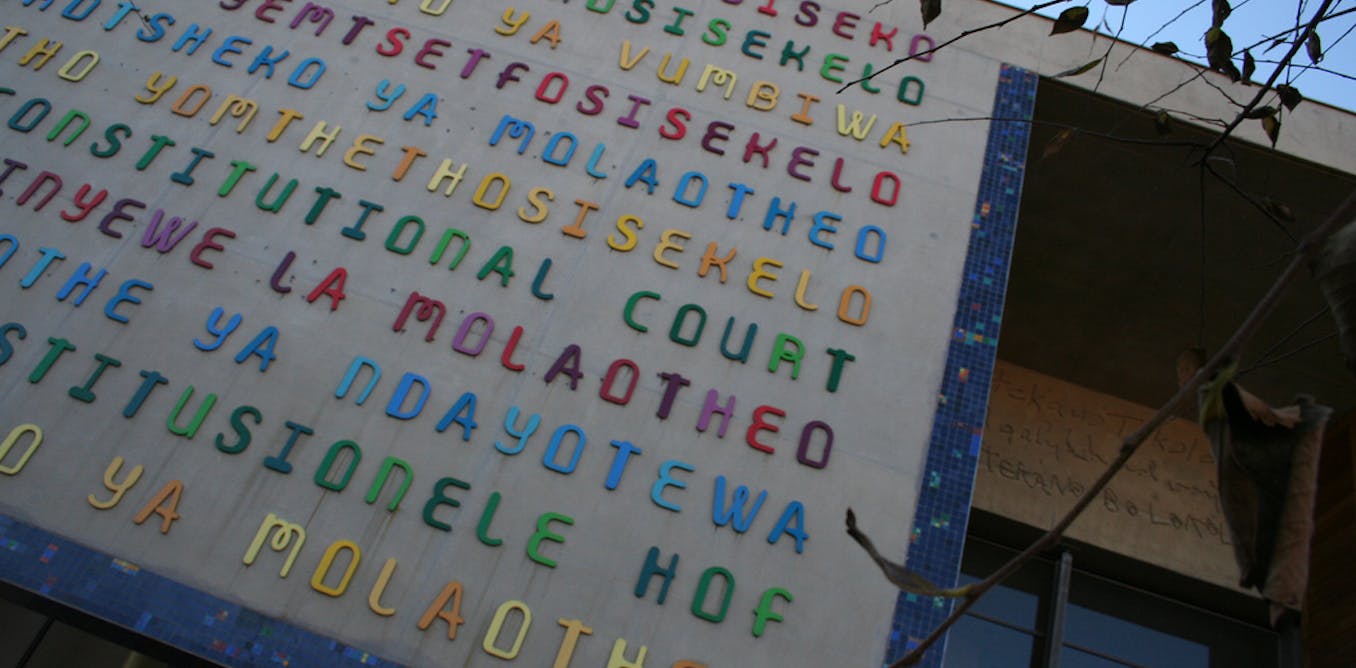
- Select a language for the TTS:
- UK English Female
- UK English Male
- US English Female
- US English Male
- Australian Female
- Australian Male
- Language selected: (auto detect) - EN
Play all audios:
South Africa’s universities are absorbed in debates about fee structures, free education and decolonising the curriculum. But amid these debates – particularly on the issue of decolonisation
– academia is ignoring what could be a fundamental force for change: language. Language policies can and should play a vital role in developing intercultural awareness. They can also make
universities far more multilingual spaces, boosting relationships and dialogue. All of this would develop deeper, more meaningful engagement with what it means to be African, arising from
understandings about people’s diversity and different experiences. Universities’ policies still tend to privilege English and Afrikaans over African languages like seSotho and isiZulu.
Assimilation is the order of the day. Students are considered successful if they speak relatively fluent Afrikaans or English. Little attention is paid to the knowledge and experiences
students bring to their institutions from different cultures and backgrounds. Indigenous languages are sidelined; indigenous knowledge is ignored. This ignorance arises from a colonial past
in which western knowledge was rarefied and its own cross-cultural origins ignored. Addressing these issues can open up new spaces for decolonisation and interculturalism where diversity is
not simply the context in which differences coexist. Instead, these differences become key to developing an authentic national identity in which diversity can also lead to transformative
insight. LANGUAGE RENDERED INVISIBLE Most South African universities teach primarily in either Afrikaans or English. Their motivation, explained in language policies, is that offering
classes in English opens the doors to more people. This is rooted in the idea of English as a globally spoken and understood language. Yet English is only South Africa’s fifth most commonly
spoken home language. It certainly is useful as a lingua franca in the working world. But an overemphasis privileges a few while disadvantaging many. Holding lessons in English mostly
empowers young middle class people coming to university via the country’s better schools. Language is somehow regarded as an invisible component of the academic world. There’s an unspoken
assumption: the languages students bring to universities are only useful to the extent that they enable students to acquire English, particularly for academic literacy. This language
dominance is part of the reason that poorer students – who tend not to speak English or Afrikaans at home – take longer to finish their degrees. They are also more likely than their middle
class, English-speaking peers to drop out before graduation. South Africa’s academics must take a hard look at themselves and universities need to reexamine their policies. Has enough been
done to access students’ experiences and worlds? Not with a pragmatic view to enabling access and participation in English or Afrikaans, but with a genuine recognition of worlds that ought
to be part of any higher education curriculum. MARGINALISED DISCIPLINES AND VOICES Andre Goodrich, an anthropologist at South Africa’s North-West University, has made a similar point. He
deals with the othering that occurs even within universities’ curricula. Goodrich argued that a discipline’s colonial character can be discerned by examining the zones of exclusion it has
produced. New disciplines that disrupt and contest what constitutes an academic subject are sidelined. Gender Studies, for instance, contested the foundations of both Anthropology and
Sociology when it emerged. Other disciplines – African Studies; Popular Culture; Queer Studies; and Indigenous Knowledge Systems – are routinely marginalised at universities as they are not
considered central to what “really” counts as the knowledge needed for success in later life. To some, these disciplines might seem abstract or remote. But their marginalisation within the
academy has a very real effect: no recognition is given to people’s experience and their knowledge, which are central to these areas of work. There are pockets of success when it comes to
Indigenous Knowledge Systems. One of my colleagues, Josef de Beer, is studying the microbial qualities of indigenous plants. These plants have long been used by communities for medicinal and
other purposes. Several universities are doing work that celebrates South African literature written in indigenous languages. But there isn’t yet a groundswell when it comes to embracing
indigenous knowledge to create curricula across disciplines and institutions. Decolonisation is nowhere near happening – and one of the main reasons for this, I’d argue, relates to the use
and place of indigenous languages in academia. LANGUAGE AND IDENTITY Scholars in the decolonisation debate have spoken a great deal about what it means to access students’ epistemological
worlds – their lived experience and understandings of truth and knowledge. But this discussion must be grounded in the context of who people are. Language is central to identity. It also
informs what knowledges students bring to a space. Many young South Africans still experience higher education as exclusionary. This makes calls by some (particularly historically Afrikaans)
institutions to embrace English as the primary language of learning profoundly ironic. These universities seem to think such a move will greatly improve access for many potential students.
But what use is access if it isn’t accompanied by a genuine recognition of diversity? Physical access doesn’t mean that students’ worlds, experiences and knowledges are suddenly prioritised
or even just recognised. The likelihood of real recognition – indeed self-reckoning – occurring in universities remains small as long as previously colonial languages remain the primary
mediums of teaching and learning. South African academia still directs an unyielding face Westwards. It continues to speak in only two of the country’s 11 tongues. When the audience to which
you speak is multilingual; and you seek to develop and reach people with words, using more than one language is important. Without that acknowledgement, teachers and academics will only
ever be aware of who is speaking. They will remain ignorant about who is listening.







